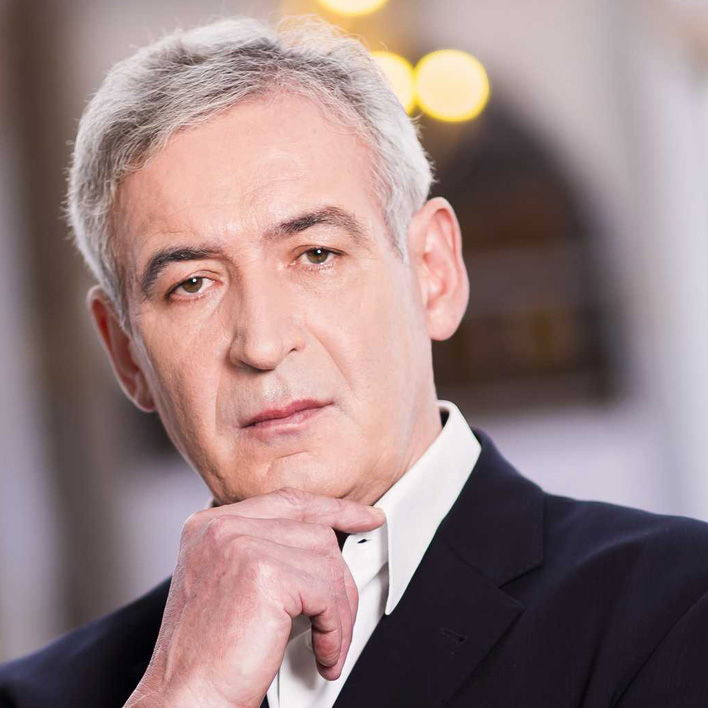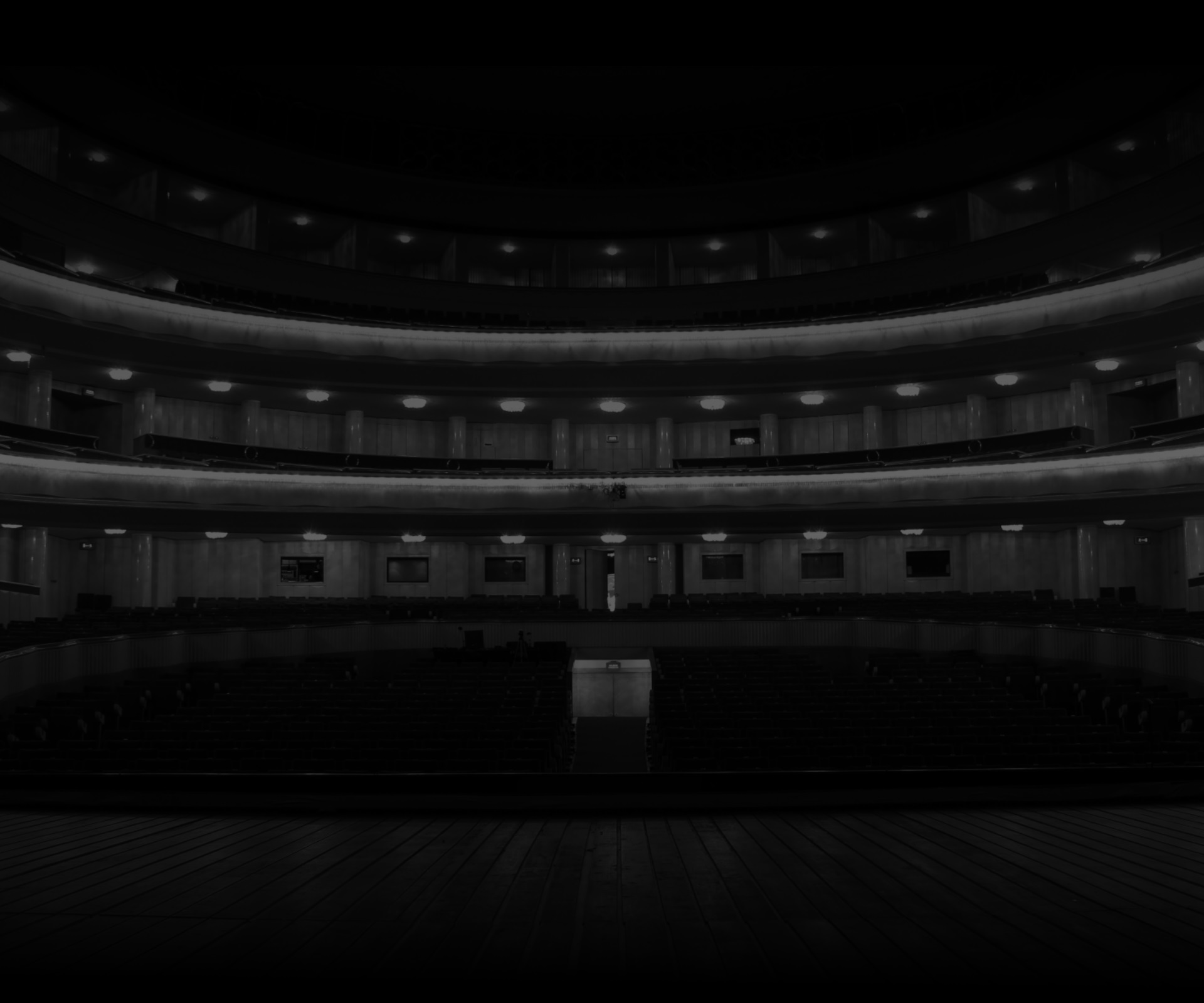
Graduate of the Department of Electronics at the Warsaw University of Technology. He was awarded scholarships by The British Council, Goethe Institute and the U.S. Department of State. He also completed the Executive Program for Leadership Development at Harvard University.
He was co-founder and manager of theRiviera-Remont Club Centre (1973-1978), which gained popularity due to its unique cultural projects. Its guests included Michelangelo Antonioni, Julio Cortázar, Nikita Mikhalkov, Andrzej Wajda, Krzysztof Zanussi, Krzysztof Kieślowski and other outstanding artists.
His university activities resulted in a proposition to take up the position of Deputy Director of the Cultural Office at the Warsaw City Council, which he held during the years 1979-1981.
In 1982, together with Jerzy Grzegorzewski, he became manager of the Studio Art Centre in Warsaw, a leading cultural institution in those times, for which he established an autonomic management office, promoting leading artists of Polish theatre, music and art.
Together with Franciszek Wybrańczyk, he founded the reputed orchestra Sinfonia Varsovia, whose music directors amongst others were Jerzy Maksymiuk and Yehudi Menuhin. He was the producer of over 70 performances at the Studio Theatre, including the famous staging of Tamara, which was the first theatre performance in Warsaw financed with private funding. During that period, the Studio Theatre went on numerous tours all over the world, participating in the most important theatre festivals.
In 1990 he became Deputy Minister of Culture and Art – the President of the Board of the Cinematography Committee. He held this position for four years, carrying out a thorough reform of Polish cinematography.
He was also the initiator of the Festival of Stars in Międzyzdroje, an annual summer event, which became an arena for the presentation of the most eminent achievements in various artistic fields.
Out of his initiative, golf was reactivated in Poland as a sport. From 1992 till 1996 President, and later up to now - Honorary President of the Polish Golf Association.
During the years 1994-1998 he was President of the Polish Agency for Foreign Investment (PAIZ), which under his direction was distinguished for achievements in European promotional investments in Chicago in 1997.
In 1998 he became General Director of the Teatr Wielki – Polish National Opera.
During the years 2002-2005, he was Minister of Culture of the Republic of Poland. His greatest achievements include the passing of the cinematographic bill resulting in the establishment of the Polish Film Institute.
In 2004 he set up the programme CHOPIN 2010. He gave a new shape to the Fryderyk Chopin Institute and he ascribed to it the responsibility for the newly built Chopin Museum and Żelazowa Wola, managed up to that time by the Fryderyk Chopin Society. Thanks to this, four investment programmes were implemented, and as a result the following have been achieved:
- the new multimedia Fryderyk Chopin Museum in the Ostrogski Palace in Warsaw;
- the modern building of the Chopin Centre (the headquarters, amongst others, of the Fryderyk Chopin Institute, the Fryderyk Chopin Society, and the International Federation of Chopin Societies);
- the estate in Żelazowa Wola has gained an entirely new appearance and the surrounding park has been thoroughly renovated.
- the previous splendour has been restored to the church in Brochów – the place of Chopin’s christening.
As Minister of Culture he founded the Book Institute in Cracow, whose mission is to popularise exceptional literature and writers in Poland and abroad, as well as to organise study visits for translators. He also established the Theatre Institute and the Audiovisual Institute in Warsaw. He also initiated the inclusion of the Culture sector in the operational programmes of the National Development Plan for 2007-2013, which, amongst others, made possible the initiating of over 200 new investments in the cultural field.
In October 2008 he was re-appointed General Director of the Polish National Opera.
In January 2008 he was nominated Chairman of the Chopin 2010 Celebrations Committee by the Minister of Culture and National Heritage, Bogdan Zdrojewski.
In November 2010 in Munich he was elected a board member of the Opera Europa, an organisation for professional opera companies in Europe.
In April 2012 Waldemar Dąbrowski accepted the minister of culture’s proposal to appoint him the ministerial plenipotentiary for the Museum of the History of Polish Jews in Warsaw.
Controversies is a series of debates on the opera as a cultural phenomenon. The project offers space to talk contexts, search for news interpretations, venture into unknown territories.
In the 2014/15 season we will be reflecting on motifs from selected titles, reaching out to different arts -- especially the cinema. We have planned a series of film screenings to take place in Warsaw's studio cinemas, and serve as food for discussion. Terra incognita of old-time dilemas has already been conquered to some degree, yet the opera continues to prove that there is still more to discover...
I. "CIRCLES OF ALIENATION" IN OPERA -- THE MERCHANT OF VENICE
Taken from the title of Michał Głowiński’s book, such areas of incompatibility are important for the biography and musical oeuvre of Andrzej Czajkowski (André Tchaikowsky). A struggle with identity and constant tension between expectation and fulfilment defines the lines along which reflections on alienation develop. Gay? Jew? Utopia of coherence?
II. OPERA HUMANA -- MARIA STUARDA
Kant’s starry sky is sometimes overcast. Where should we seek advice? Psychoanalysis tries to answer questions on the imperative of human activity, on the driving force that controls our choices. Is it other people, our own experience, toxic parents, childhood, traumatic events, love or hatred? Why do we need responsibility and does a morality of music exist?
III. THE SYNAGOGUE OF SATAN -- POWDER HER FACE
The meanders of femininity are an inexhaustible theme. Woman controlled by desires, hysterical, a witch – battling this image has taken centuries. Never fear: this is just a masculine projection, a sublimation of male fears, specifically created in its own non-image – or so feminism reassures us. Is the Duchess of Argyle a woman enslaved or just the opposite – emancipated? Are the opinions about her an argument in the anti-feminist discus- sion or a victory for feminism? From Orpheus, through Przybyszewski, Poe and Dostoyevsky, to Berg and Adès.
IV. THE TERRITORIES OF OPERA -- THE 'P' PROJECT
The death of opera has been announced many times before. But today, does not the old term dramma per musica seem a more appropriate name? What challenges do 21st century artists face from opera as an art, and what from opera as an institution? What does it have that provokes, entices, repels? How do today’s generations of composers approach the reality of opera theatre? Is the composer struggling with the institution a battle whose result is a foregone conclusion? Creative strategies and work tactics – opera is (not) dead.
V. WITNESS OF THE TIMES -- WILLIAM TELL
An assassination attempt on Napoleon III was made in 1858. The emperor was on his way to see a production of William Tell. For decades Rossini’s opera had to wait in the vestibule of Milan’s La Scala. The Nazis banned it. It was cut, modified, it was politically and ideologically inconvenient. William Tell – a work of art as a witness of history.





